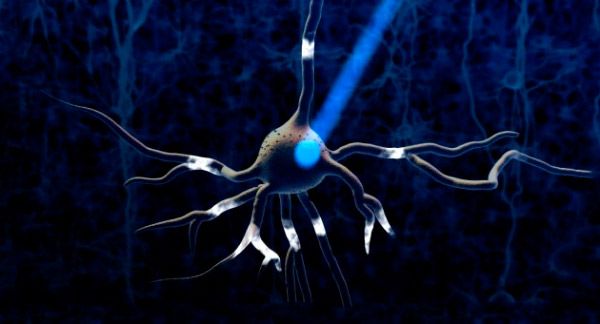
All iLive content is medically reviewed or fact checked to ensure as much factual accuracy as possible.
We have strict sourcing guidelines and only link to reputable media sites, academic research institutions and, whenever possible, medically peer reviewed studies. Note that the numbers in parentheses ([1], [2], etc.) are clickable links to these studies.
If you feel that any of our content is inaccurate, out-of-date, or otherwise questionable, please select it and press Ctrl + Enter.
Optogenetics can help you get your memory back
Last reviewed: 02.07.2025

A new development by Japanese specialists can help all people suffering from memory loss, in particular Alzheimer's disease. The Japanese propose to restore forgotten memories using optogenetics, but despite the fact that the method has only been tested on experimental animals, specialists are confident that the technology has great potential and will become available in the near future.
Optogenetics is a new branch of medicine aimed at studying neurons and their reaction to light in combination with opsins. Scientists have learned to influence nerve impulses, suppressing or stimulating them if necessary using irritants (in this case, light - laser or fiber optics).
New research was conducted at the Institute of Genetics of Neural Connections, where a new method of memory restoration was tested on rodents with Alzheimer's disease. During the experiment, it was found that with the help of a weak light stimulus, it is possible to restore memory areas that have suffered due to the development of Alzheimer's disease. In addition, scientists have proven that the established work of neural connections helps to restore memory.
The new method is based on introducing special light-sensitive genes into brain cells and then exposing them to light. Various neurodegenerative diseases, including Alzheimer's, block access to memory, and light stimulation allows you to restore connections between neurons and return memories.
The experts emphasized that even one intervention was enough for the brains of the experimental animals to function normally, including the memorization of new information.
Experiments were also conducted with healthy rodents, in which memory impairments were provoked mechanically, and the new method of memory restoration proved effective in this case as well and helped to quickly return forgotten memories to the rodents.
The research team plans to experiment with other animal species, as they need to ensure the safety and effectiveness of the method before starting clinical trials involving humans, and they also intend to improve their technical skills in performing the operations.
Optogenetics is a fairly young science, the study of which began just over 10 years ago, but scientists can already say with confidence that this technology has enormous potential, and medicine is expecting a breakthrough in the treatment of a wide variety of diseases.

Optogenetics has replaced electrophysiological methods for studying neural connections, and scientists note that optogenetic methods will allow a new look at the treatment of diseases such as Parkinson's, depressive disorders, epilepsy, and anxiety.
Optogenetics currently occupies one of the leading positions among neurosciences, and 6 years ago, one of the scientific journals recognized such methods as the achievements of the year, and another scientific publication called optogenetics a real breakthrough of the decade. It is quite possible that in the near future, optogenetic methods will find their application in industrial markets, and will also be used to treat diseases that are currently incurable.
 [ 1 ], [ 2 ], [ 3 ], [ 4 ], [ 5 ], [ 6 ], [ 7 ], [ 8 ], [ 9 ]
[ 1 ], [ 2 ], [ 3 ], [ 4 ], [ 5 ], [ 6 ], [ 7 ], [ 8 ], [ 9 ]
